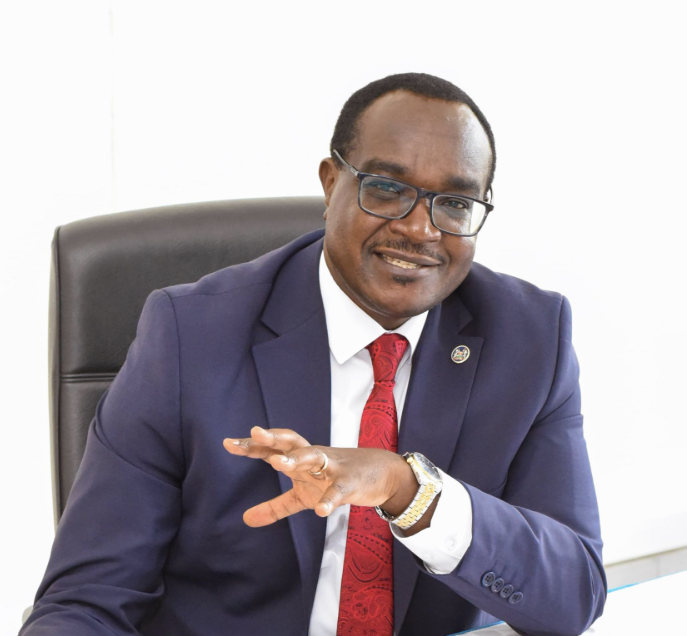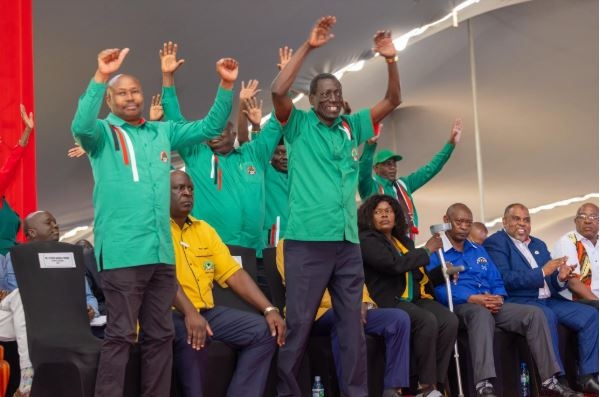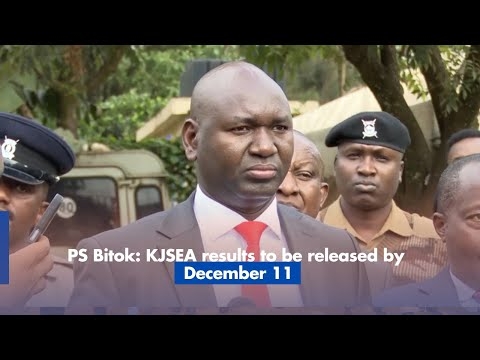
 Education Cabinet Secretary Julius Ogamba. /FILE
Education Cabinet Secretary Julius Ogamba. /FILEEducation Cabinet Secretary Julius Ogamba has broken his silence following reports that the government has slashed capitation funds for free secondary education and sought to set the record straight.
In a statement on Saturday, the CS said the ministry has noted with great concern reports appearing in sections of the media regarding the government's position on the Free Day Secondary Education Programme.
He explained that both he and Treasury Cabinet Secretary John Mbadi appeared before the National Assembly’s Departmental Committee on Education on Thursday, July 24, to discuss education funding.
During that session, they drew attention to the fact that funding for the Free Day Secondary Education Programme had fallen below the approved rate of Sh22,244 per learner per year despite rising enrolment under the government’s 100 per cent transition policy.
He said the funding shortfall was because the budget passed by Parliament was insufficient.
“Free and compulsory basic education is a constitutional right of every child, pursuant to Article 53 of the constitution. The government has neither the intention nor the power to abrogate this sacrosanct right,” Ogamba assured.
He said the Ministry of Education and the National Treasury would “continue to proactively lobby the National Assembly to allocate more resources for this and other education programmes, to ensure that all learners are funded at the approved rates.”
The clarifications come in the wake of sharp comments by MPs during the committee hearing.
Mbadi admitted to MPs that the state could no longer sustain full capitation.
“If you look at the total budget for the year and divide it by the number of total students, you will see that instead of Sh22,000, we are funding about Sh16,000. And so we release 50 per cent, 30 per cent, then 20 per cent. As to whether it is enough, it is not,” Mbadi told the committee.
Following pubic uproar from stakeholders, Basic Education Principal Secretary Julius Bitok issued an assurance the following day.
“I want to assure the country that the policy on free primary and secondary education has not changed. The government will continue financing education through the Ministry of Education,” he said.
Bitok added that the ministry would “lobby Parliament to increase the education budget to shield parents from any additional expenses.”
During the committee hearing, frustrated MPs raised concerns over funding shortfalls, delayed disbursements, and misallocation of capitation, particularly after the auditor general revealed that money has in some instances been sent to non-existent schools, and seemingly ended up in people's pockets.
Emuhaya MP and committee member Omboko Milemba questioned the mismatch between official policy and actual disbursements.
“We are promised Sh22,000 per learner, but the reality is far less. This is creating financial confusion in schools. You are creating a crisis in schools. Let’s be honest with headteachers on what to expect,” he said.
Ogamba’s statement did not refer to alleged ghost schools or disbursement scandals, though MPs had pressed for explanations.
He maintained the focus on reaffirming the government’s constitutional commitment to the provision of free basic education.
“The government will work to fulfil its duty of providing access to quality education for all our children,” he said.
The split narrative between what should be disbursed, Treasury pointing to fiscal deficits while the Education Ministry affirming stance to uphold constitutional provisions has left parents and educators a concerned lot amid growing tensions.
Despite Ogamba's assurance and commitment to continue lobbying for adequate funding, the prevailing situation has translated into confusion as schools struggle to operate.















